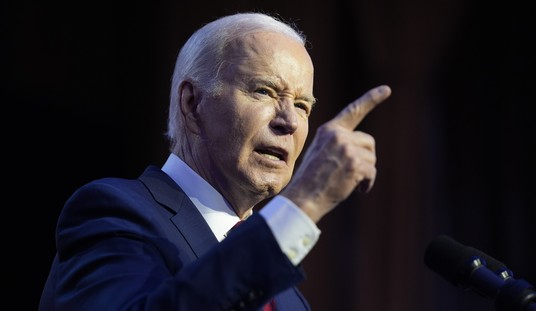The Commerce Clause of the Constitution has been used as a garbage can of left-wing jurisprudence to grant the federal government infinite power over the the citizenry for years. Ironically, the original intent of the Commerce Clause was to serve as a check on state power grabs across state lines, not as a new power for the Feds to wield over the people.
Here’s what James Madison had to say about the Commerce Clause in a letter to Joseph C. Cabell in 1829:
For a like reason, I made no reference to the “power to regulate commerce among the several States.” I always foresaw that difficulties might be started in relation to that power which could not be fully explained without recurring to views of it, which, however just, might give birth to specious though unsound objections. Being in the same terms with the power over foreign commerce, the same extent, if taken literally, would belong to it. Yet it is very certain that it grew out of the abuse of the power by the importing States in taxing the non-importing, and was intended as a negative and preventive provision against injustice among the States themselves, rather than as a power to be used for the positive purposes of the General Government, in which alone, however, the remedial power could be lodged.
Well, in the case of the internet sales tax, Congress finally has the opportunity to exercise its power under the Commerce clause to prevent injustice among the states. Instead there is a bipartisan consensus in the Senate to allow states to tax internet sales across state lines.
Yesterday, 74 senators, including 27 Republicans, voted to proceed with debate on the so-called Marketplace Fairness Act (S.743). The bill would essentially allow states to join together in a tax cartel to force online retailers to collect sales taxes on behalf of all 50 states based on the location of the shipping address. Although the bill never went through regular order and a markup in the Finance Committee, Harry Reid is fast-tracking this bill through the Senate.
Here are my continued concerns about the entire premise of the interstate cartel:
- Taxation without representation: The idea that states could collect sales taxes from companies in other states is an anathema to the founding ideals of our country.
- Hurting federalism and low-tax states: While brick and mortar stores are forced to collect taxes from everyone, they are only subject to the tax of their home state. So if they are located in a state with no sales tax or a low tax they collect the lower tax, even if the customer is from a high tax state. Under the MFA, online vendors in a state like New Hampshire would still have to collect the high rate of taxes of customers from California. So red-state companies will have to serve as tax collector for high-taxed blue states, thereby obviating the benefit of being in a red state and blurring the effectiveness of laboratories of democracy.
- Onerous Burden: This bill would encumber online businesses with the technicalities of establishing a tax collection system that would satisfy nearly 10,000 unique tax jurisdictions in this country? That is a recipe for killing jobs and raising the cost of goods. It’s for good reason that in 1992 the Supreme Court referred to such a scheme as a “burden” and violation of due process. Big online retailers like Amazon are willing to shoulder this burden in return for driving smaller online businesses out of the market or into their own platform. In that sense, this is a consummate example for big government colluding with big business. It should be called the Amazon Enrichment Act.
- National Sales Tax: Collection, enforcement, and reciprocity of this tax would be so complicated that it would engender yet another fix in the endless cycle of government incompetence. The only way to effectively collect it would be with a uniform national sales tax. There is no question that the MFA would be the easiest way for liberals to leverage their much sought-after national sales tax – an entirely new revenue stream.
- This is a tax increase: Why would we ever push for new revenue and a new stream of taxation that will totally disrupt e-commerce? Let’s find ways to lower the tax burden on brick and mortar stores instead of raising them on online vendors.
The internet is the most successful invention known to man. Why? Because it is the freest venue of information dissemination in the world, unencumbered by government. We need to keep it that way. The bill is being heavily pushed by Walmart and Amazon, which stand to benefit from such a cumbersome regulatory tax system that disproportionately hurts small online retailers. It is also being pushed by state and local governments who are hungry for the new revenue to grow government, but lack the fortitude to ask for the revenue through new direct taxes (on the seller) or simply enforce collection of use taxes that already exist in most states.
Passage of this bill seems to be a fait accompli in the Senate. We must begin calling on House leadership to invoke the Hastert Rule and block any legislation that lacks support from the majority of the GOP Conference.
No more tax increases! Blocking states from forming an interstate tax cartel would actually represent the first prudent and legal use of the Commerce Clause in decades.













Join the conversation as a VIP Member